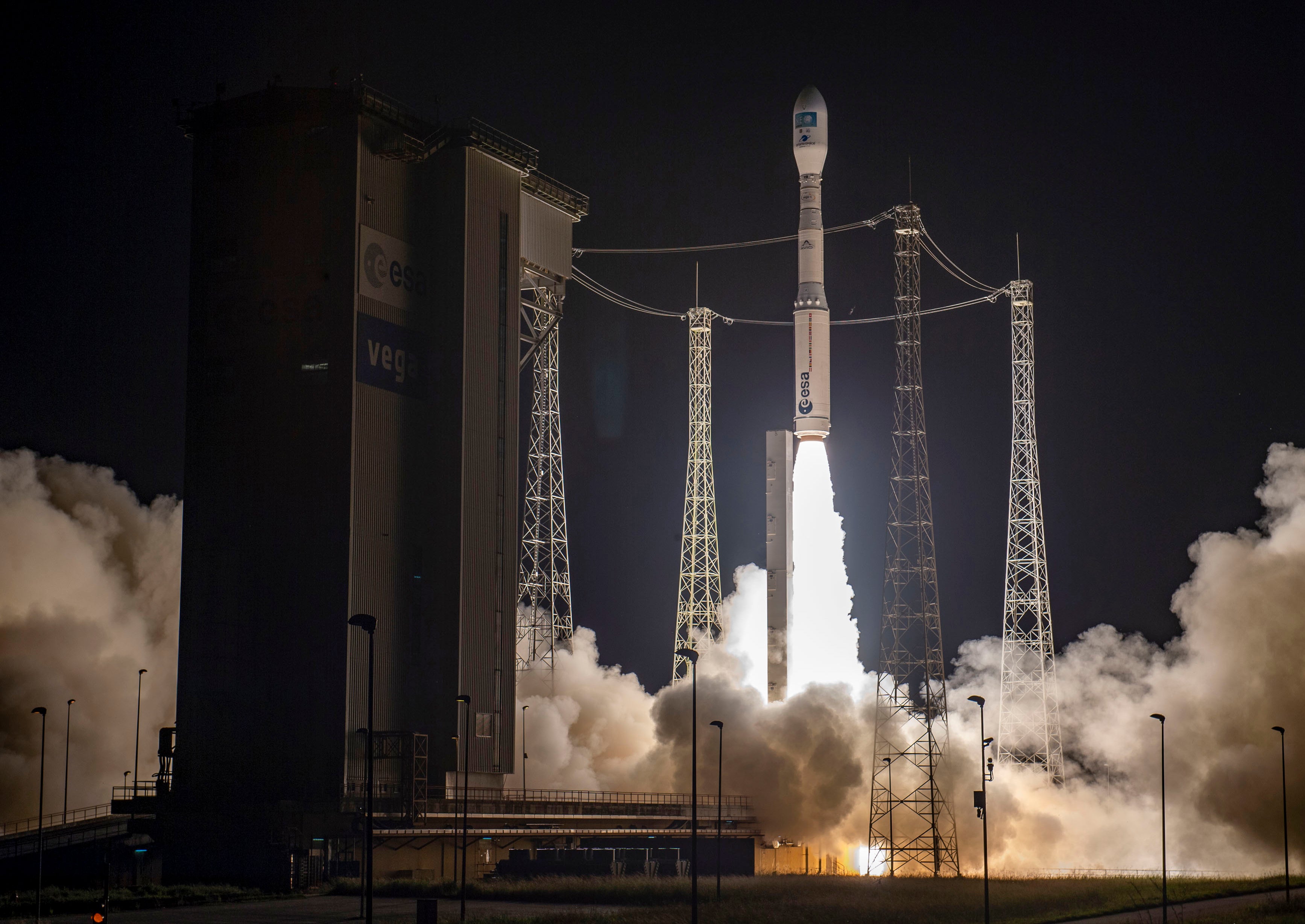Failure of Vega-C rocket launch in French Guiana
The launch of a European Vega C rocket carrying two Airbus satellites has failed less than three minutes after liftoff from the European base in French Guiana

Your support helps us to tell the story
From reproductive rights to climate change to Big Tech, The Independent is on the ground when the story is developing. Whether it's investigating the financials of Elon Musk's pro-Trump PAC or producing our latest documentary, 'The A Word', which shines a light on the American women fighting for reproductive rights, we know how important it is to parse out the facts from the messaging.
At such a critical moment in US history, we need reporters on the ground. Your donation allows us to keep sending journalists to speak to both sides of the story.
The Independent is trusted by Americans across the entire political spectrum. And unlike many other quality news outlets, we choose not to lock Americans out of our reporting and analysis with paywalls. We believe quality journalism should be available to everyone, paid for by those who can afford it.
Your support makes all the difference.The launch of a European Vega C rocket carrying two Airbus satellites failed less than three minutes after lift-off from the European base in French Guiana on Wednesday.
Arianespace, which provided the launch service, said in a statement that “an anomaly occurred” approximately 2 minutes and 27 seconds after liftoff, "thus ending the Vega C mission.”
It did not give any further information, but planned to hold a news conference Wednesday afternoon.
“Data analyses are in progress to determine the reasons of this failure,” it said.
It was the first commercial launch of a Vega C rocket, Europe’s light launcher capable of lifting about 800 kilograms (1,700 pounds) into space.
The launch, operated by the European Space Agency, was meant to take two earth observation satellites made by Airbus, Pleiades Neo 5 and 6, into orbit. The satellites would have been part of a constellation capable of taking images of any point of the global with a resolution of 30 centimeters (11.8 inches).
The rocket successfully made its inaugural journey on July 13.
The Vega C development program has been managed by ESA and associates 12 of the 22 members states of the agency.